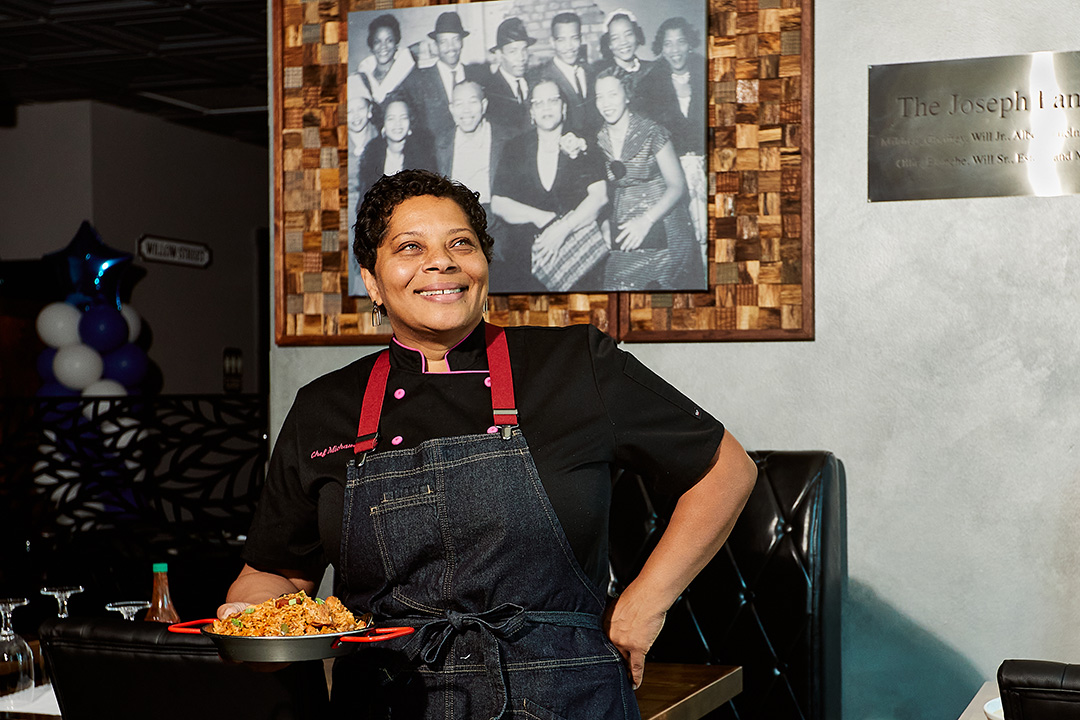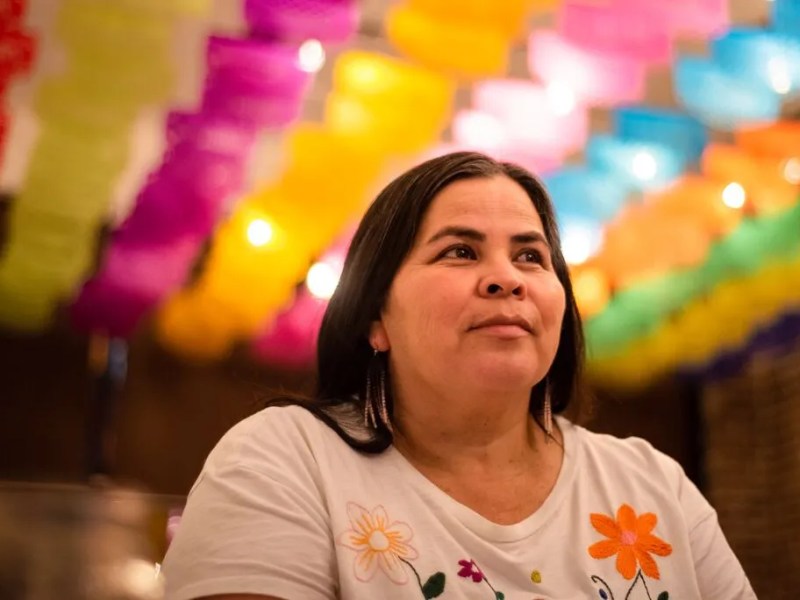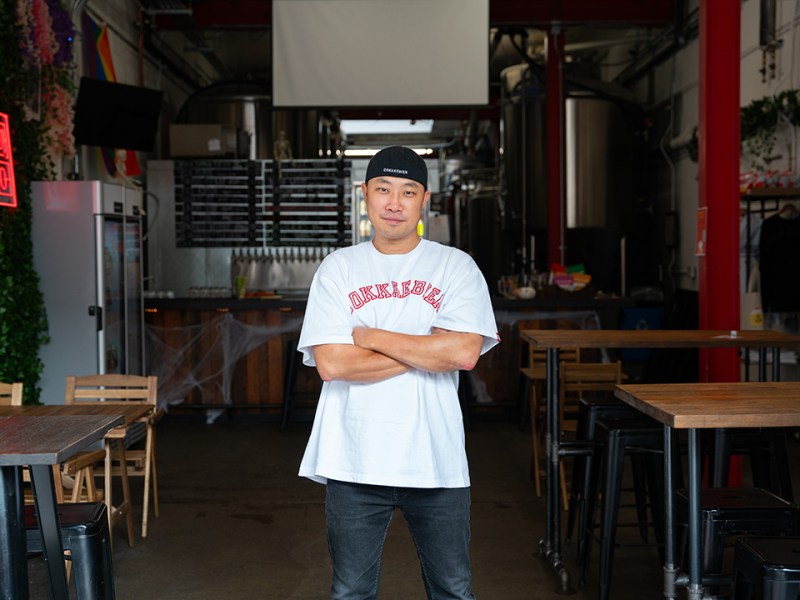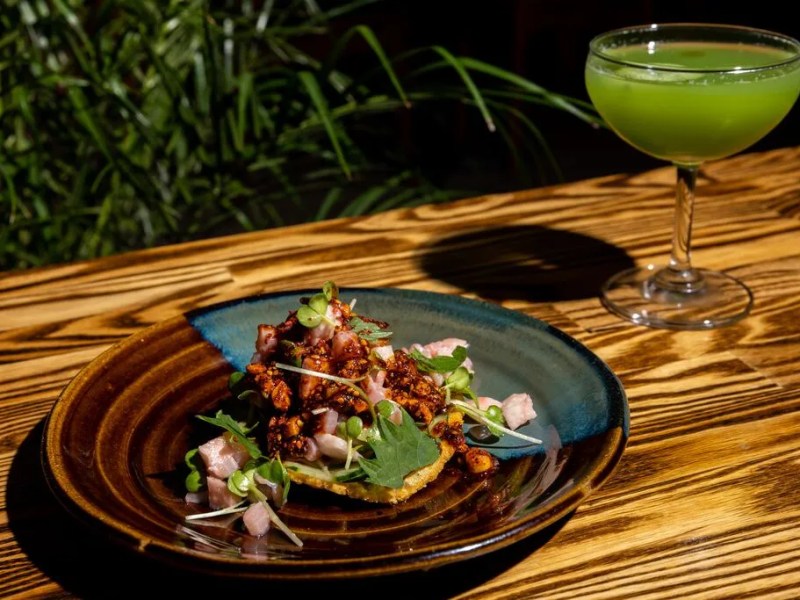Michauxnée Olier has slowly clawed back her family legacy, slow-cooking oxtails, braising short ribs, sauteing shrimp and baking biscuits across the East Bay. It is a legacy she clutches close. After all, it was nearly wiped away.
She honors that heritage with the name of her first restaurant, Willows & Pine, and the black-and-white family photos that adorn the walls of the Dimond District establishment, which opened in October.
Olier’s great grandparents moved from Shreveport, Louisiana, to Oakland in the late 1930s and early ’40s, part of the Great Migration of Black people leaving the South to escape discrimination and find opportunity elsewhere in the country. Their first home in Oakland was on Willow Street. They opened the Save Yourself Market at Pine and Seventh streets, and later, in the same pace, The Barn, a beloved soul food restaurant and community focal point in West Oakland. When the neighborhood boomed in the ’50s, singers like Sam Cooke and Lou Rawls would dine at The Barn after performing for crowds at nearby Slim Jenkins. Olier watched her grandmother cook at The Barn, and saw how she spread joy with plates of ribs and collard greens.
Willows & Pine: Open from 5 p.m. to 9 p.m. Wednesday through Sunday and 10 a.m. to 3 p.m. Saturday and Sunday; 3525 Fruitvale Ave., Oakland; willowsandpine-restaurant.com
In the 1960s, Oakland deployed eminent domain to push the mostly Black residents of the neighborhood out for redevelopment—a freeway, new post office and BART station.
“West Oakland was a beautiful place up until the city with the decree to clean out West Oakland came through,” Tom Nash, a musician and former Slim Jenkins regular, said in 1994 for an oral history project about West Oakland. “It wiped out The Barn, one of the finest restaurants that we had … They called it The Barn because that’s exactly what it was, a great big old empty barn … They put in a restaurant in there, and you could go in there and get all kinds of soul food. But nevertheless, the city, through the process of eminent domain, took over all of that property down there and scattered the people.”
“Willows & Pine is an homage to the business that helped originally put the family in a different socio-economic status. Now, I’m going to move that family wealth back on down the line.”
Michauxnée Olier
The redevelopment of West Oakland devastated families who were displaced and never appropriately compensated for their property and businesses. Olier’s family was no different, and she spent her childhood moving around the Bay Area, at one point living in Oakland public housing. The Barn was never demolished — it still stands today next to the shell of Esther’s Orbit Room — but the industrialization of the area drained away the character and wealth of the neighborhood.
A long road back
In 2007, Olier returned to the Bay Area after a stint living in Texas and her grandmother asked if she would like to cook Thanksgiving dinner for the family.
“After the meal she says: ‘I don’t have to do this anymore, you can cook for the family now,’” Olier said, wiping tears from her eyes. “It just meant so much to me, to have her approval, for her to leave this responsibility of feeding the family to me.”
Olier took over the family meal duties with pride, but she still lacked the belief that she could make a business out of cooking. She had worked as a legal assistant for more than a decade, but was unfulfilled and adrift.
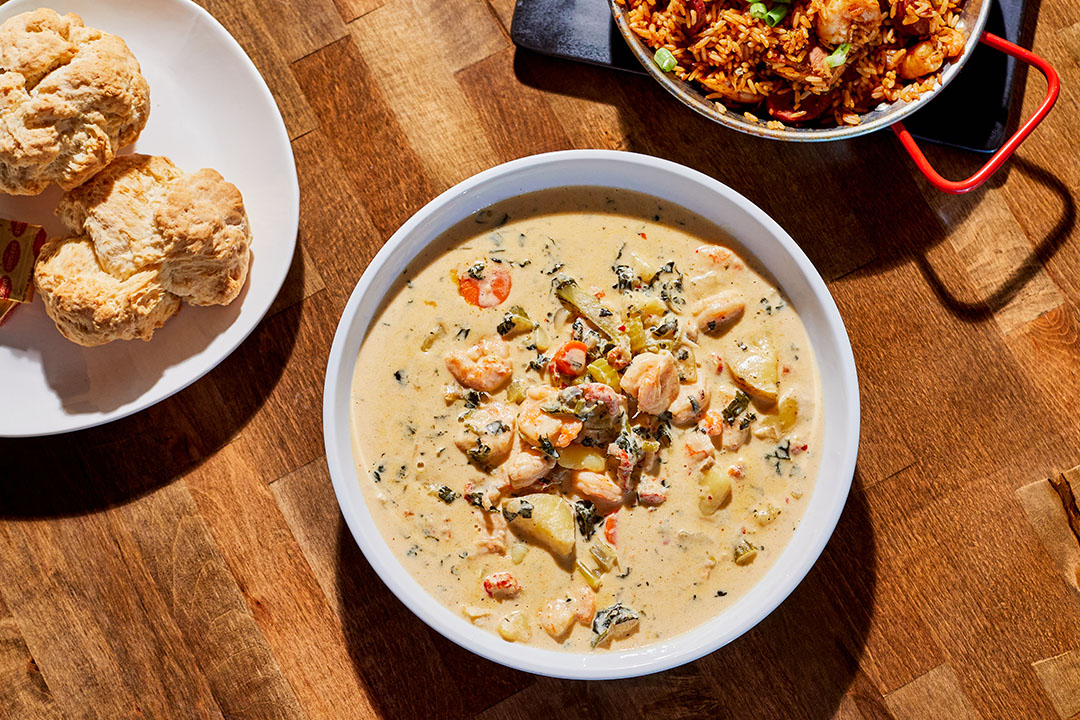
“I felt small,” she said. “All these lawyers with degrees went to see their kids play sports, but I had to work late and didn’t have that kind of freedom. I was burnt out. I stopped working hard, and I deserved to be let go.”
The law firm fired her two days after Christmas in 2017.
“It threw me in a tizzy,” she said. “I didn’t know what I would do.”
By then, Olier had begun doing small catering jobs as a side gig. When she was laid off, her husband at the time encouraged her to take the plunge and start a food business, and she launched Busy Wife Personal Chef and Catering. She cooked for weddings and other events, and sold $20 family meals out of the trunk of her Chevy Suburban at her son’s Pop Warner football practices in Hayward.
At first, most of her work came from friends and family. But eventually, word spread and Busy Wife took off. She was invited to run a soul food pop-up out of The Payback in downtown Oakland in March 2019. But the bar closed in September of that year, and COVID-19 arrived a few months later.
Olier adapted, relying solely on small catering jobs and mobile meal delivery. She also threw herself into charity endeavors. She worked with chef José Andrés’ nonprofit World Central Kitchen, cooked a free meal for a 2020 Juneteenth event, and started participating in Feed the Hood events.
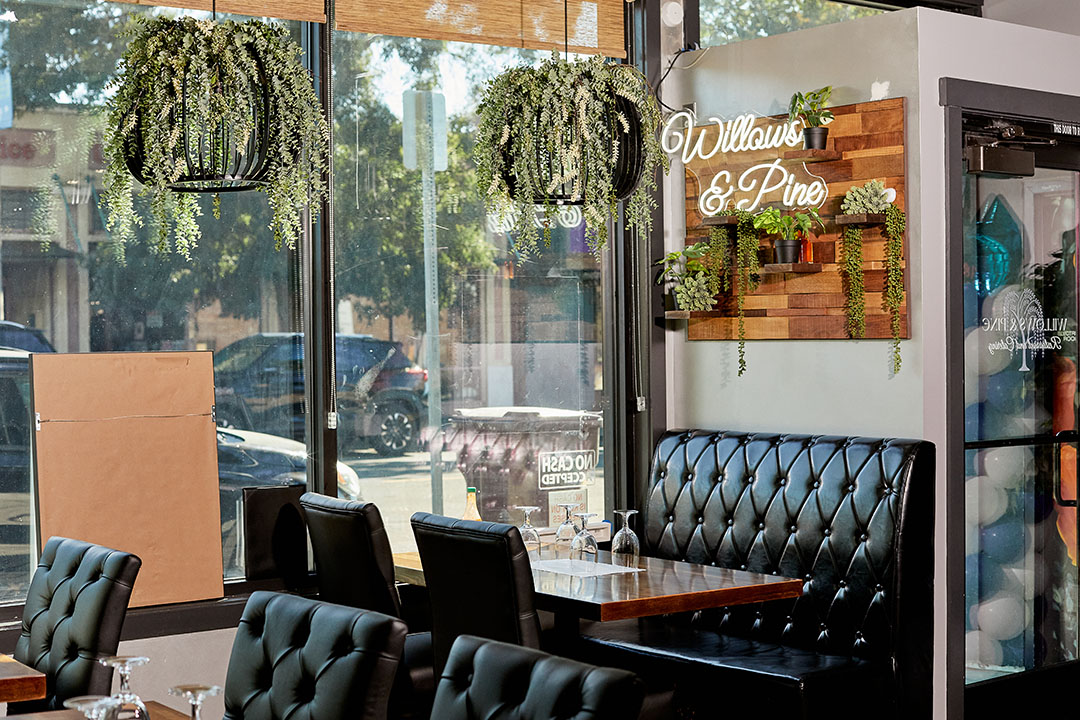
“It’s important to me to help the community, to help feed people who need a hand,” Olier said. “During the pandemic, three of my cousins who were unsheltered died of COVID.”
As restaurants reopened with social distancing, Olier was invited by chef and restaurateur Daniel Patterson to run a brunch pop-up out of Dyafa in Jack London Square. She gained more experience running a restaurant and developed new dishes, but after 14 months, when the commercial eviction moratorium ended, Dyafa (which had already ceased operations) and Olier had to move out.
“Once again I was back to cooking out of my home, running a BBQ pit in my backyard,” Olier said. “But at that point, I knew I could do it.”
Reestablishing the family legacy
Olier poured every dollar she made from Busy Wife back into the business and set her sights on finding a permanent space.
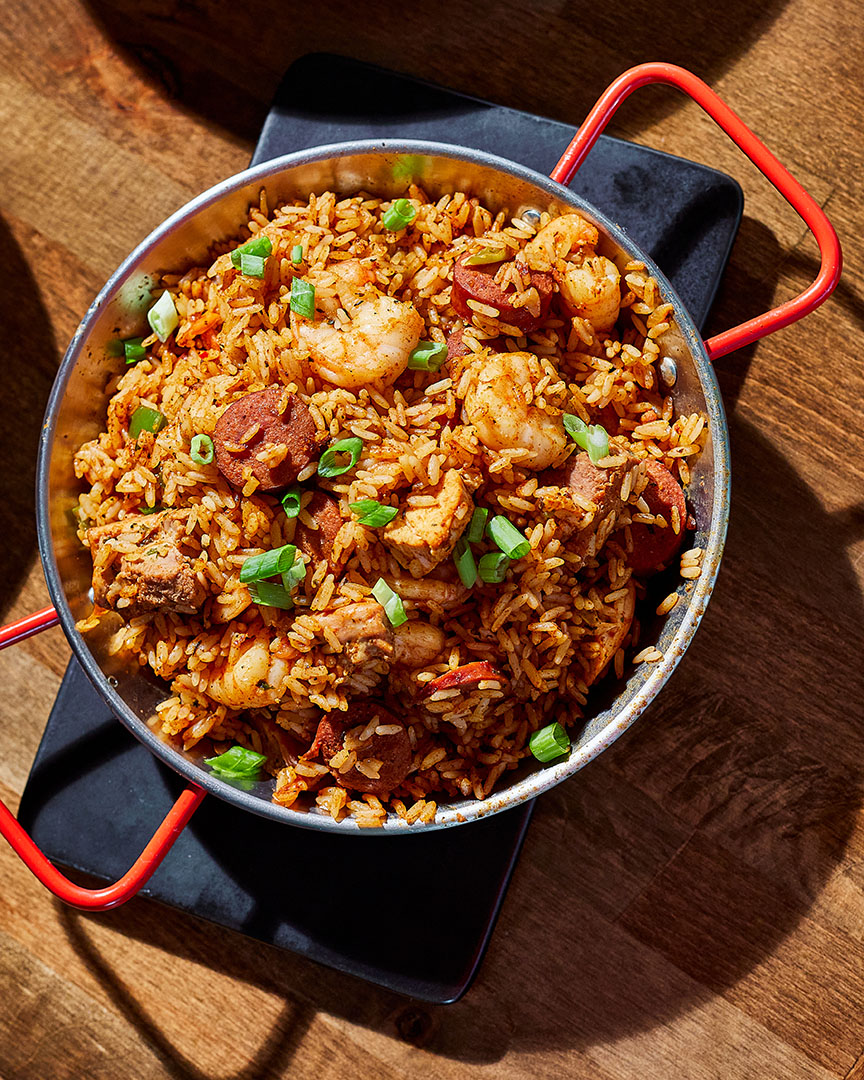
Without savings, she struggled to get financing. Eventually, she secured a $250,000 loan from the Real People’s Fund, a Bay Area organization that provides financing to Black entrepreneurs and others who have traditionally received less support from financial institutions.
In May, she signed a lease on an empty space on Fruitvale Avenue, half a block off MacArthur, and built it out to her liking. There are comfy black booths, a sparkling new kitchen, and a neon “Willows & Pine” sign in the front window. There is also a large photo of the Joseph Family, the side of Olier’s lineage that ran The Barn, hanging in the middle of the main dining room.
A saying from Olier’s 86-year-old grandmother, Ruthie Mae Glenn, is painted in black cursive writing on the wall: “Real love, no charge.”
While the catering business was focused on soul food and stayed flexible to meet customer requests, Willows & Pine features a menu of Olier’s creole creations. Dishes include shrimp and crawfish chowder served with biscuit or cornbread, chicken etouffee and jambalaya with shrimp, chicken and sausage.
Brunch, served Saturdays and Sundays, features braised oxtails with grits, potato frittatas, and caramelized peaches on a housemade biscuit with honey butter and goat cheese.
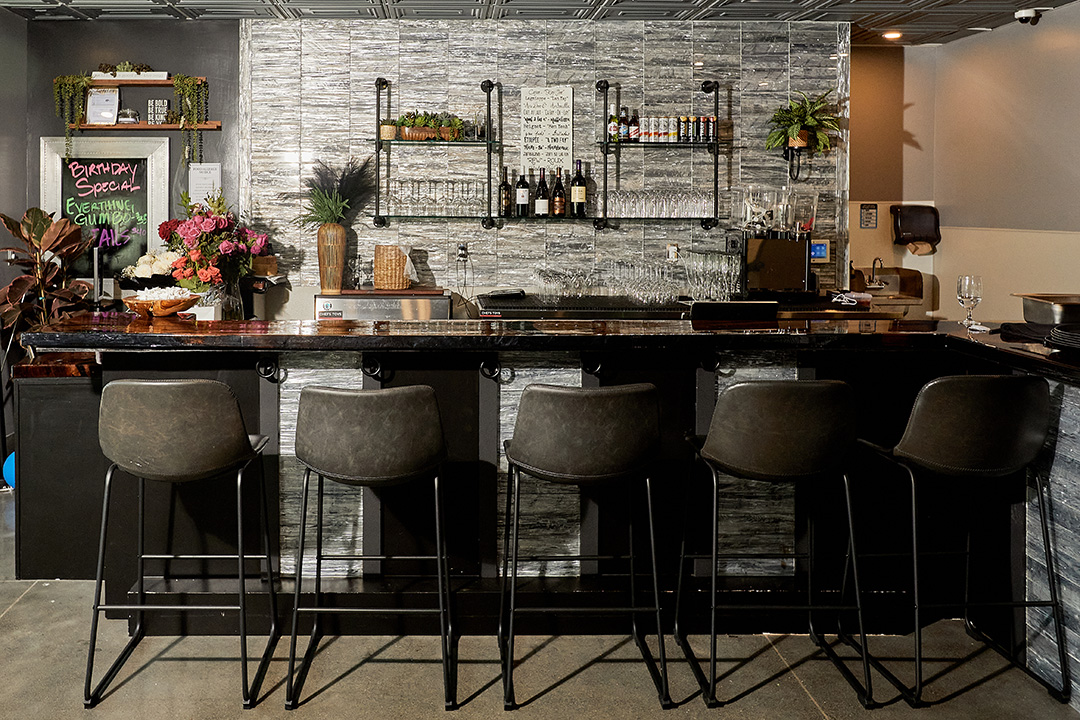
“I want to use this platform I have now to help other entrepreneurs elevate and showcase their food,” Olier said. “Each one, teach one. If we all help each other grow, we can all eat.”
Olier plans to highlight wines and beers from Bay Area, Black-owned businesses and has invited a guest mixologist to weekend brunch service.
“The journey has been an extremely valuable lesson and blessing,” she said. “Willows & Pine is an homage to the business that helped originally put the family in a different socio-economic status. Now, I’m going to move that family wealth back on down the line.”

